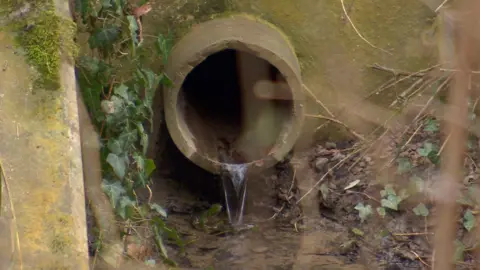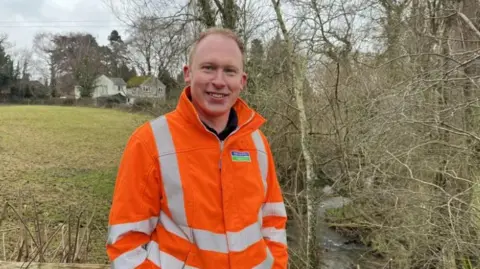Severn Trent to invest £2bn in reducing sewage spills
 BBC
BBCSevern Trent is investing £2bn to improve river health and upgrade 600 storm overflows across its network.
It comes after the company was fined £2m last year for pollution in the River Trent and £327,000 for spills in a Gloucester tributary.
Bosses said they now plan to invest about £2bn over the next five years to reduce the use of storm overflows, upgrading 1,500 last year.
Matt Leedham, from Severn Trent, said: "We know the customers and the public want us to reduce spills across the board and we totally lean into that, we really want to get these numbers down."
Spills in Cheltenham have reduced by 96% as a result of an storm overflow upgrade, a company spokesperson confirmed.

The UK has a combined sewerage system, meaning both rainwater and wastewater from toilets, bathrooms and kitchens are carried in the same pipes.
In heavy rain, the amount of water in the system can mean it overflows, causing sewage to run into rivers.
Severn Trent bosses insist reducing spills is a top priority for the water company.
Despite the reduction in spills in Cheltenham, there has still been a number of spills in Alvington and Lydney in the Forest of Dean.
Both have discharged sewage into the Severn in recent weeks.
Mr Leedham confirmed the company has already introduced 1,500 interventions over the last year to tackle sewage spills.
Follow BBC Gloucestershire on Facebook, X and Instagram. Send your story ideas to us on email or via WhatsApp on 0800 313 4630.
